
Paul Smith JHS Interview
JHS has grown from the one-man operation begun by John Hornby Skewes in 1965, working from his home in Leeds, into one of the largest and most diverse musical instrument distributors in the world. MIN’s Andy Hughes talked to the company MD Paul Smith about the company development, the difficulties of Covid and Brexit, and the need for constant development and innovation.
The company was established at John Hornby Skewes’ home. What was the USP that has enabled him to grow the company to the size it is now?
Next year is the sixtieth anniversary of the company, and Mr Skewes is no longer directly involved, he left the board and is now retired, but he still takes a very active interest in the company, in his ninetieth year. It’s the measure of the man that he managed to grow his company from his own solo business in 1965, to the size and level we have now reached. He wasn’t a musician; he was a salesman. And he built the company, and kept it going, and developed it. He is probably one of the most determined people I have ever met. He ran a very tight ship, and as I said, he likes to keep an eye on what the company is doing, what brands we handle, and how things are going generally.
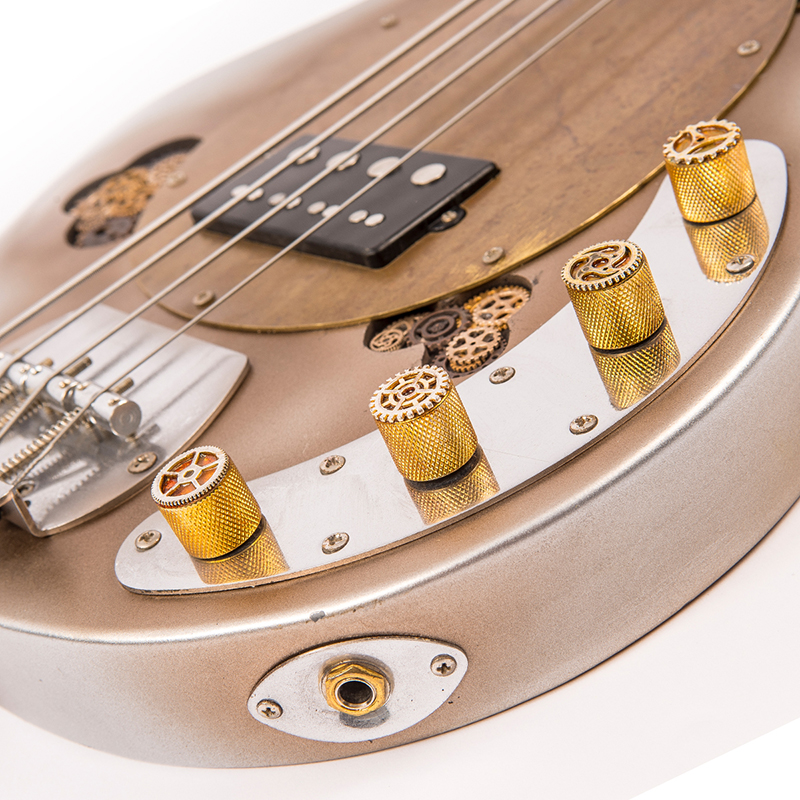
It appears, looking at the company, and the breadth and variety of brands and items that you sell, that you cover pretty much anything the market could ever want.
I think that has always been one of the company’s main strengths. I started with the company as Purchasing Manager in 2000, this is my twenty-fourth year. The emphasis in almost all major companies who supply a product, or product, is sales, and rightly so, because that is the lifeblood of the company. But Mr Skewes always put a massive amount of effort into the buying side as well. His philosophy was very simple, if you buy right, you can sell what you have bought. If you don’t buy right, you won’t sell what you buy, it is as simple as that. So, with that attitude, the company has always had a very strong emphasis on buying properly. The relationships we have built with our vendors, some of them in the Far East go back nearly forty years with us, are very strong and very successful. They may have moved countries, but we essentially deal with the same people. We have around sixty-five brands in our catalogue, selling virtually everything the market requires, with the exception of keyboards, which we don’t deal with.
Is there a reason for that?
I think it was not something Mr Skewes every really investigated with a view to making it something the company dealt with, and as a result of that, we don’t have the expertise to deal in that market. I think the idea was that those who dealt with keyboards would look after that side of the market, and we would stick to the rest of the orchestra. That’s not to say that we won’t approach that market in the future, we just have no immediate plans to do so right now. If we do decide to explore that area of business, we will probably look at the ‘entry level’ area, because that has always been part of the core strength of the business for us. The Encore guitar brand was everyone’s ‘first guitar’ for a long time. There is a massive ongoing change in the industry as we speak, and we will be very sure that we don’t stand still and get left behind in any area of the business.
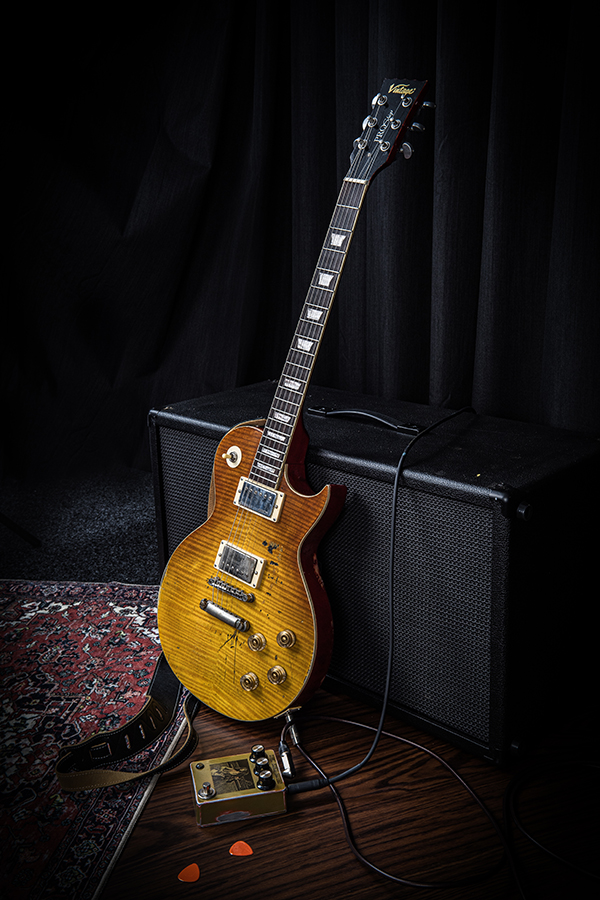
You started out as Purchasing Manager in the company, and you have risen to your current role of M.D., so I think it’s fair to say that you have a deep understanding of the different levels and areas of the business, rather than someone who simply sits behind a desk all day.
Absolutely. I assumed the role of M.D. two years ago, but I still have a large role to play in the Marketing and Sales side of the company. I will be in China in October, visiting the factories that we deal with over there, around the time of the Shanghai Trade Fair. We do have a very team-orientated operation here and I do enjoy a hands-on role in the marketing, the packaging, the product development, I am involved in all of those areas because as a company, it’s essential when we are bringing new products into the market.
The role of M.D. varies from company to company. What specifically does your individual role involve?
It has quite a number of strands to it, as I am sure you can imagine. I oversee the sales force in the company. We have four Business Development Managers who look after the U.K., Ireland, and international markets, and I undertake an overseeing role in that area. I am also involved in the Purchasing Product Development side of the company, and more of the marketing side than I had been previously. It’s busy, but I do enjoy it.
JHS has a massive range of accessories in its portfolio, as well as the comprehensive range of instruments it offers. Was this the original area of business when the company began?
It was indeed. When Beatlemania took off in the early sixties, and so many young lads wanted to start playing guitars, Jon Skewes saw that there was going to be a massive market in guitar straps, guitar cables, capos, picks, and all that attendant stuff that guitarists need. So the company started off getting those accessories manufactured. Originally all the manufacturing for the products was UK-based. There were postmen making guitar cables when they’d finished their shifts delivering letters, Mr Skewes was such an entrepreneurial spirit. Then he began travelling to the Frankfurt Show, which was huge at that time, and that got him introduced to more oversees manufacturing, and at that time a lot of manufacture was carried out in Eastern Europe, they were manufacturing a lot of guitars and accessories. I believe we were one of the first companies dealing with manufactures in the Far East, Korea, and Japan, and now a lot of manufacturing for the company is carried out in China. The accessories arm of the business is the bedrock of the company, it’s what pays the bills. We do a massive range of parts and hardware, around four-and-a-half-thousand items in our catalogue, we do a lot of parts for instruments.

A company like JHS, which knows its way around, through long experience and considerable success, would never look at expansion into any area of its business without due diligence and research. Is there any aspect of the business in which you are exploring expansion, either in terms of manufacture, or in new customer markets?
We are constantly on the look-out for new brands. We do spend a lot of time looking at our own brands, our proprietary brands, which we market internationally. But at the same time, we are always looking for brands that we can distribute. So we are at the NAMM Show every year, we travel to China every year looking at new manufacturers, and new brands, in that territory, because there are a lot of new and emerging brands coming out of China that are looking for the level of international representation that we are able to offer. We cover all the Trade Shows, we will be at the Guitar Show in Manheim in September, so we are always looking for new opportunities. We are interested in products and companies that will fit into the catalogue that we offer to our customers.
Given your expertise as a distribution company, do companies approach you for representation, or is it a proactive system where you actively seek out new business?
It tends to be a mixture of both. Because we are known as distributors in the UK, we do get approached by companies, which is very satisfying, but equally we are not shy about going out and approaching companies for a discussion to explore the potential for a relationship between us. We know that that there are small builders who are selling domestically in Europe or The States, who lack the expertise to expand their business outside their own domestic territories, and we are always keen to look at these smaller companies to see if we can assist them as they develop and grow and build their international business.
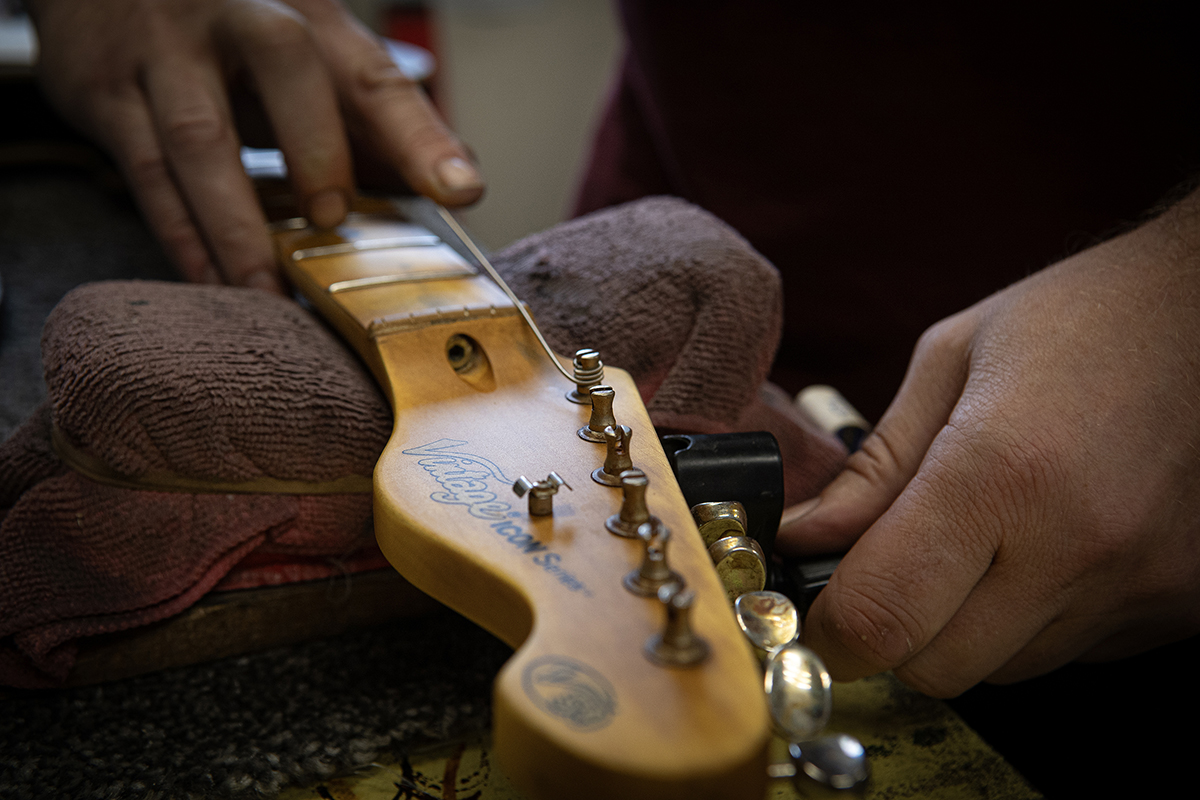
Is this exploration of potential new business partners something that you oversee, or is that dealt with by other people in the organisation?
It can be myself, or the Senior Buyer in charge of Merchandising, or Dennis Drumm our chairman, who is very well known within the industry. And companies we work with for distribution may recommend us to their suppliers and manufacturers and suggest that they may benefit from a chat with us about potentially working together for their expansion outside their standard domestic area.

Given that your company is one of the biggest distributors of instruments in the market, how competitive is the business you are in?
It is extremely competitive. Because the way people purchase has changed so massively over the last few years, and we have competition from the Far East, and we have a lot of competition from on-line retailers. Brexit has thrown a massive wall up for the distribution and retail sectors, so I would say that it is probably more competitive now than it has ever been. The trick is to adapt, and adapt quickly. It’s no use waiting until you look around and realise that major business has disappeared. So, we are constantly looking not only to next month, but to next year, and then thinking about the systems we are going to need to have in place within the next three to five years. As more and more business transfers onto the Internet, we have to be proactive in helping our customers with adapting to that change. We have been liaising with them for a number of years, ensuring that they have the assets they need to provide their websites. Our customers are engaged in stronger competition, and if we are not able to assist them with that, then we as their distributors get left behind. If we go back about fifteen years, everyone in our business sector was looking at the idea of on-line retailing and deciding that it was never going to catch on! You have to be aware of the changes in your marketplace, and be ready to move and adapt with them.
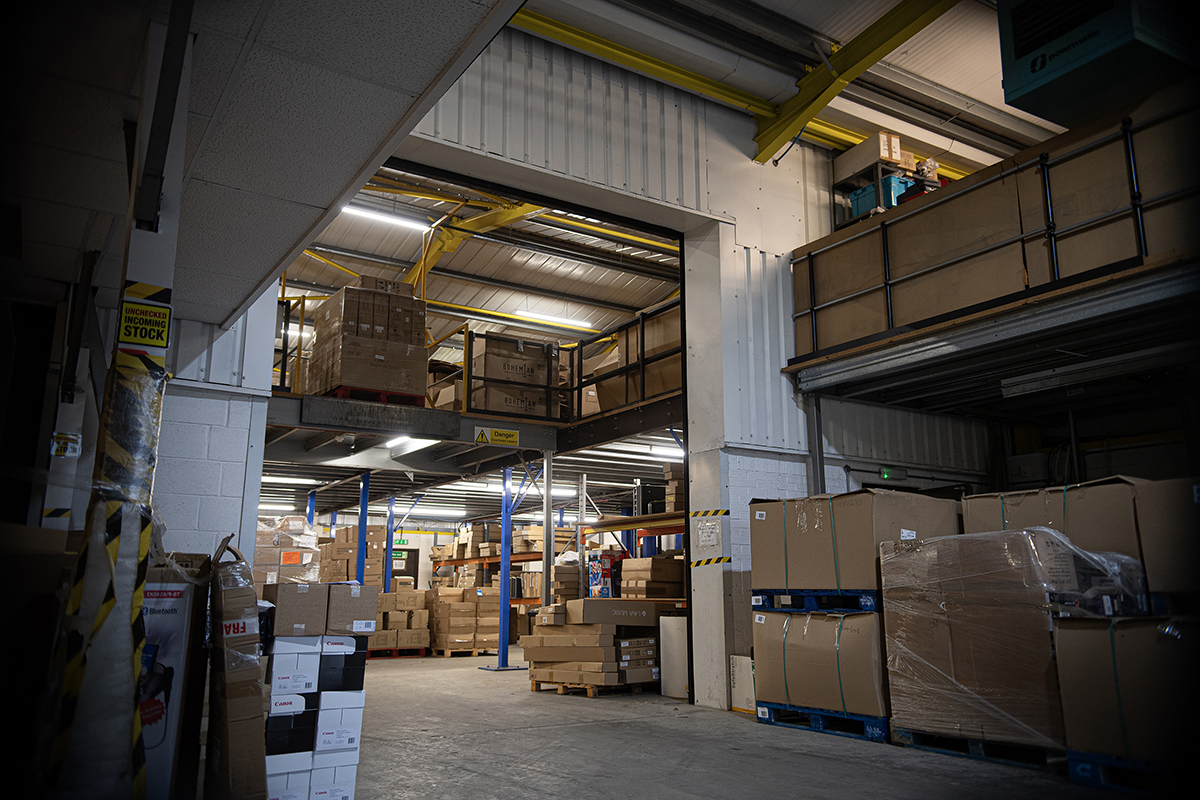
Have you seen any positives as we emerge from the rigours of Lockdown?
I can say that one major plus from Lockdown, is that people are even more aware now that music is a great way to enjoy downtime, and relax, and if you look around, people are still wanting to buy instruments, and wanting to get into home recording, and people still want to be in bands and make music, and that is a great positive to take from the dreadful times we all had.
To return to the Brexit situation what has the impact been on you as a company?
To be honest, it has had more of an impact than we initially foresaw when we found out it was going through. As a company, we have always been involved in exporting, we have exported for well over forty years. So, we figured, we have exported all over the world, why should a new set of rules stop us from exporting into Europe as we always have? And the reality is that it has taken us the best part of the last four years or so, to be able to break down all the barriers that have been put up in front of us. For the country, it must have cost billions of pounds in lost business. And it’s only now that companies like ours are getting back to being able to sell in the ways that we did when we were part of the EU.
There is a perception that the result of our exit from the EU, was the revenge of the EU in making life in general and trade in particular, as difficult for the UK as possible. Is that how it has been in reality?
Whether that was actually the intention or not, it certainly seems to have been the result. It has meant that it has been very difficult for UK businesses large and small, to carry on selling as successfully as they did before the Brexit regulations started to come into force, from a logistical and a financial point of view. We are now selling directly to retailers in the Benelux countries, that’s an area and a market share we have been working on for some time now. We have a sales agent working for us over there, and we are able to sell products into those countries and have them delivered within a few days. Previously, we were finding it expensive for the customer to receive goods, there were delays when goods were held up in Customs, we have had to work to get over that, so that people will look to buying from us again, as opposed to buying locally, which is another barrier to international sales. I think we will start to see the benefits of our work in those areas over the next twelve to eighteen months.
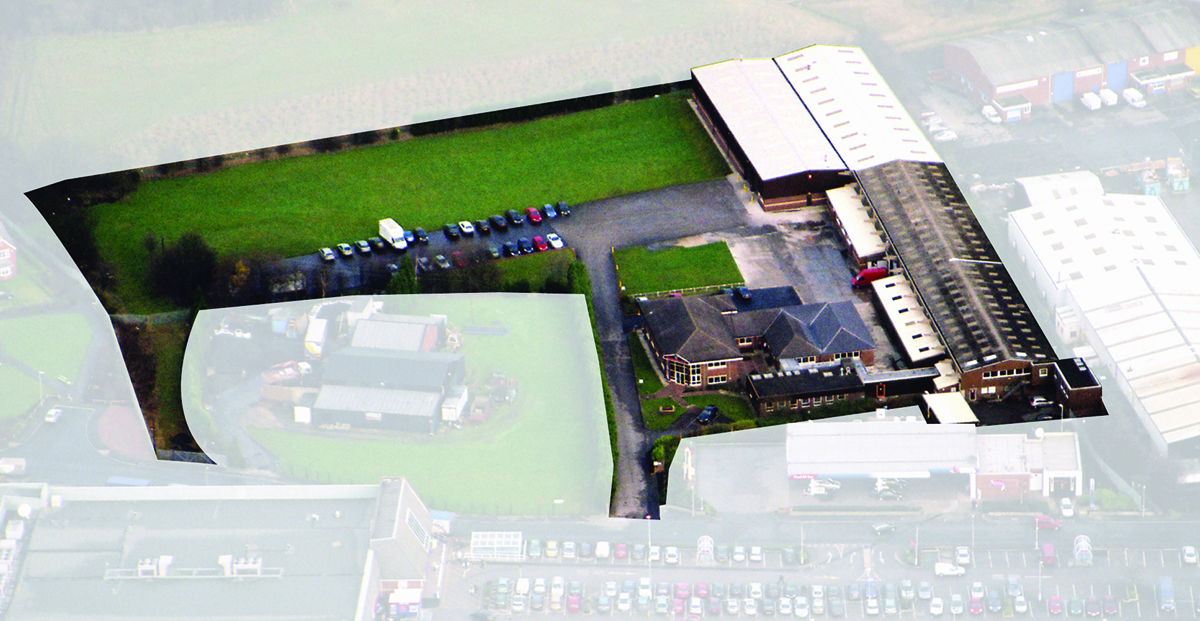
JHS has grown and expanded since its inception, is there a point at which expansion becomes finite, of do you foresee simply growing without stopping?
As far as physical expansion is concerned, we are located on a very large site, so we do have the space and capacity to expand. If we wanted to put up another warehouse, we could do that, we are not restricted with limitations of space, we wouldn’t need to move our premises. What we do need is the people, and we have been developing that area over the last few months in terms of recruitment, so we are in a position to expand as and when we feel that conditions are right for us to do so. One area where we are expanding is our Vintage Pro Shop series where we manufacture custom-built guitars for individual customers and we are developing that market all over the world. We have set that up over the last few years and that is an area that we are keen to develop and grow.
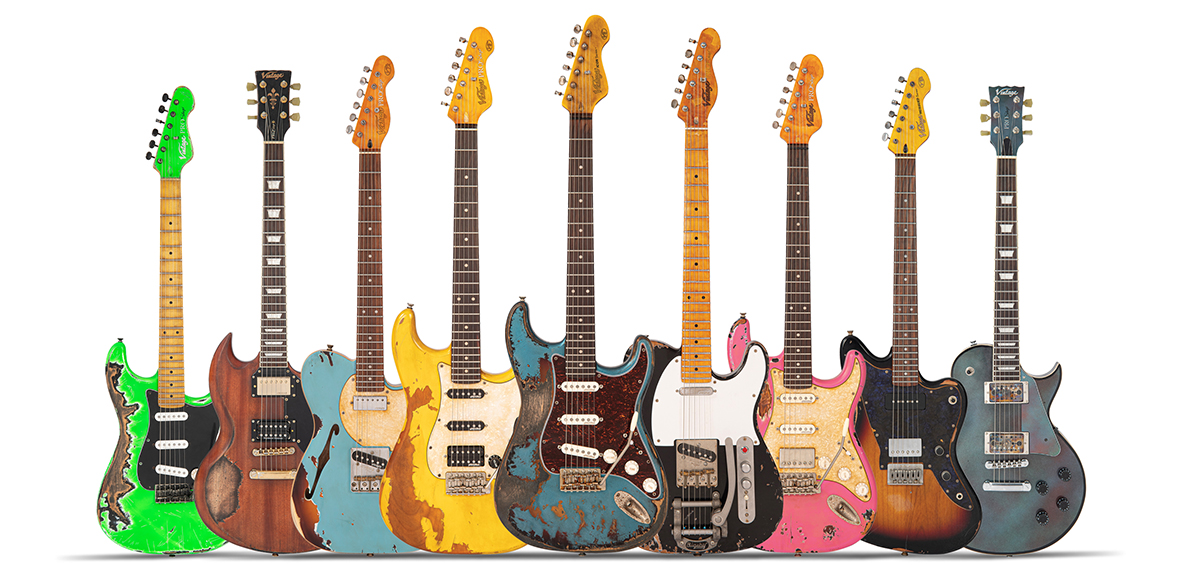
So, development continues?
Absolutely, if you don’t develop you stand still and you don’t survive. The structure of the company is such that decisions are made quickly, we don’t need three board meetings to approve something, and it’s very good for the board and for the staff to be able to implement changes very quickly. As I mentioned, next year is the sixtieth anniversary of the company, and it’s also the thirtieth anniversary of the Vintage Guitar models so there will be some special models created and marketed to celebrate that milestone.
Is there such a thing as a typical day for you?
I’m not sure there is a typical day as such. Days do tend to start early, because we deal a lot with Far Eastern manufacturers and contacts, so because of the time difference we tend to start the day with them, and then move through to dealing with the USA in the afternoon and evening. So days can be quite long, with e-mail and WhatsApp and so on, and all the ways when people can get hold of you, and of course, everyone wants an answer instantly, which does make life hectic at times. I am pretty old-school, so today, when I exchanged three or four e-mails to arrange to have a phone conversation with someone, I long for the old days when you simply picked up a phone and called them and had a conversation. People seem to be reluctant to do that anymore, which is a pity, maybe we should go back to that.
ANDY HUGHES – Music Instrument News
The post Paul Smith JHS Interview appeared first on Music Instrument News.
Source: musicinstrumentnews.co.uk













